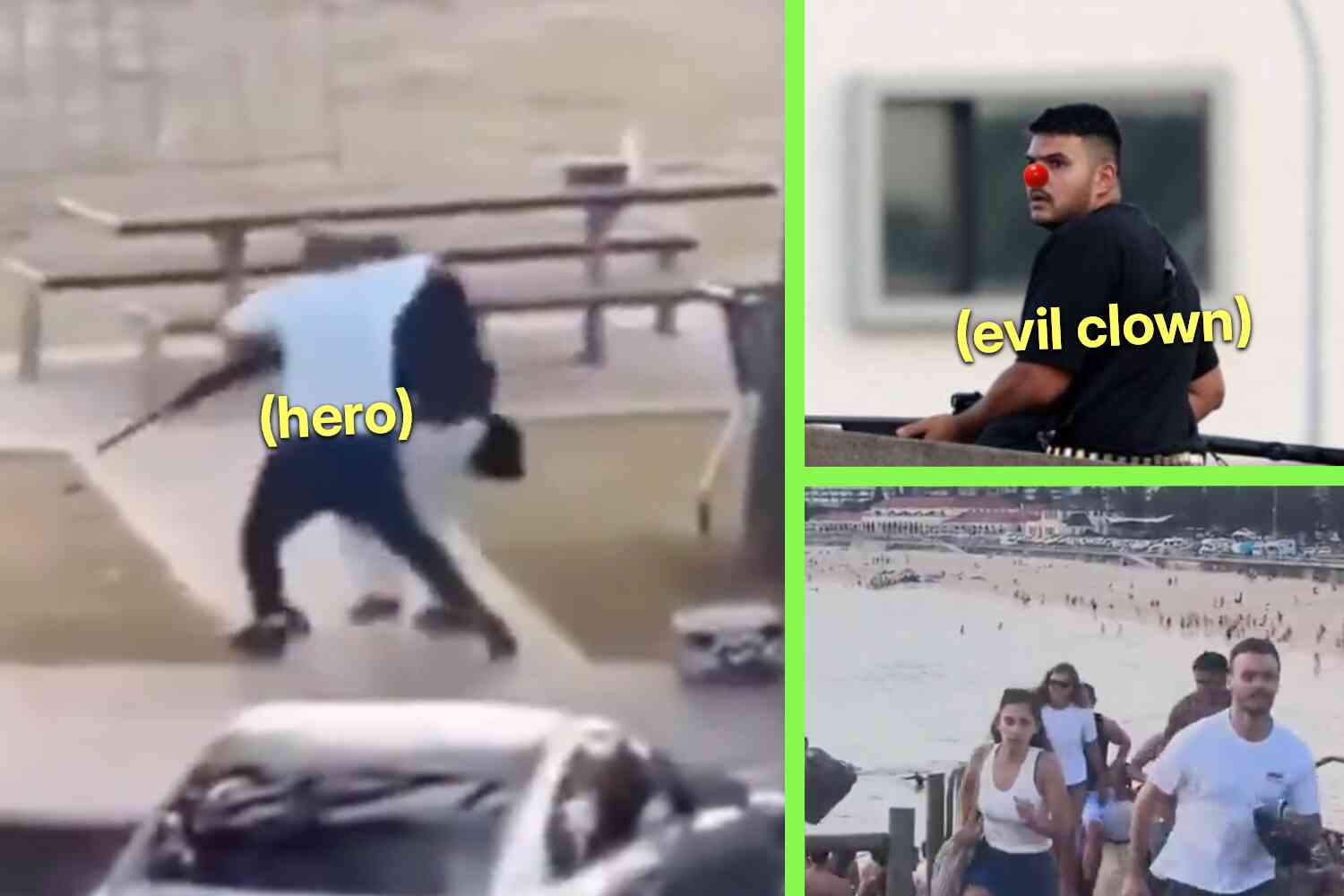Oh, well, then, I guess that settles that.
Nothing to see here folks.
The decision follows what the department is calling a "thorough investigation of Ms. Babbitt's shooting." After reviewing video footage, social media posts, officer statements, witness accounts, evidence from the scene, and an autopsy report, federal officials claimed "there is insufficient evidence to support a criminal prosecution" over the death of the 14-year Air Force veteran.
I'm sorry, did I say "nothing to see"? There's plenty to see, you just aren't allowed to. We do have a self-serving one-page press release, though, so there's that.

All we really need to know is that the officer was a hero. This much we know because that's what his lawyer says.
"His bravery on January 6 was nothing short of heroic," Schamel said in a statement. "He stopped the rioters from gaining entry into the Speaker's Lobby and saved the lives of countless members of Congress and the rioters. His heroism should be no surprise to those who know him."
We don't know those people who knew him because the totally transparent investigation is missing one curious detail.
The hero officer's name.
Interesting, since we seem to know an awful lot about Kim Potter, the police officer accused of shooting and killing Daunte Wright in Minnesota earlier this week.
We know her name, when she joined the force, her work history, heck, we even know where she lives.
In fact, everyone does!
But that's totally different. Potter appears to have accidentally shot an unarmed man while the unnamed hero Capitol police officer deliberately shot an unarmed woman.
The DOJ's press release, which refused to name the officer who shot Babbitt, also stated federal prosecutors could not prove beyond a reasonable doubt that "the officer acted willfully to deprive Ms. Babbitt of a right protected by the Constitution or other law."
You know what makes it really difficult to prove a case beyond a reasonable doubt?
The whole not-actually-trying-the-case part. That usually reduces your odds significantly.
Instead of unreasonably shooting Babbitt, federal officials said the officer could have acted "out of fear, mistake, panic, misperception, negligence, or even poor judgment cannot establish the high level of intent required under Section 242."
While Potter was named and charged within days for what could very well have been a "mistake, panic, misperception, negligence, or even poor judgment," the Capitol police officer instead gets to resume his life.
Admittedly, Section 242 does make it difficult, by design.
To convict law enforcement officers of civil rights violations, including shootings resulting in death, prosecutors must be able to prove that an officer used "objectively unreasonable" force and "willfully" used more force than he thought was necessary. The high bar of willfulness makes bringing charges against an officer difficult, and Wednesday's outcome was not unexpected by legal observers under the circumstances.
Just for fun, let's imagine Babbitt was a black unarmed BLM protester shot by a white Capitol police officer instead of a white MAGA protestor shot by a black Capitol police officer.
Does anyone want to seriously argue that Biden's DOJ wouldn't have figured something out to charge him with, if only to make his life a living hell and bankrupt him?
We would certainly know his name.
In fact, let's have some real fun and play, "What's My Narrative?"
Our first narrative is brought to you by the mainstream media and the DNC, but I repeat myself.
Ashli Babbit was part of a treasonous insurrection threatening not only lives, but our very democracy, and the Capitol police officer acted in heroic fashion in saving the Republic. He must be protected from the violent MAGA mob and their white supremacist supporters.
Daunte Wright was an innocent man unfairly targeted and ritually executed by a racist cop who deserves to be thrown in jail.
Our second narrative goes like this.
Ashli Babbit was God-fearing patriot and a military veteran who loved her country and yet was gunned down in cold blood for trespassing in what is supposed to be "the people's house" despite being an unarmed woman of modest stature.
Daunte Wright was pulled over for expired tags, had a a warrant out for his arrest for a gun charge, resisted arrest by trying to flee the scene in his automobile endangering the lives of the police officers and other bystanders and was shot dead in a tragic but careless accident.
Which is true?
Almost certainly neither, as life is more complicated than the cartoonish caricatures the media likes to feed us.
The sad thing is, we'll never know which is closer to the truth because nobody seems to be all that interested in justice anymore, just the narrative and how it serves the greater aggregation of power.









